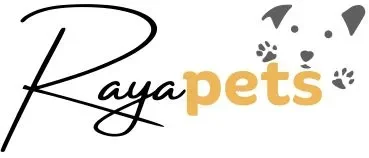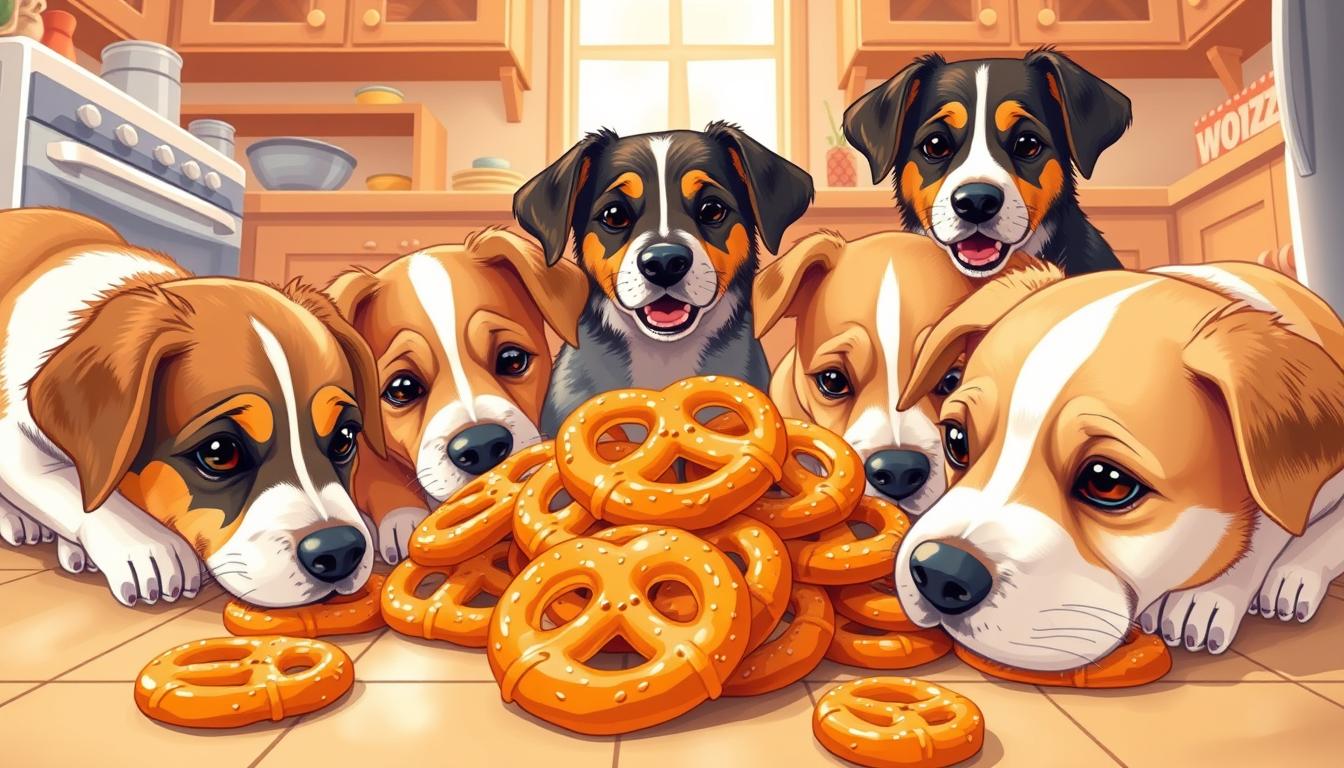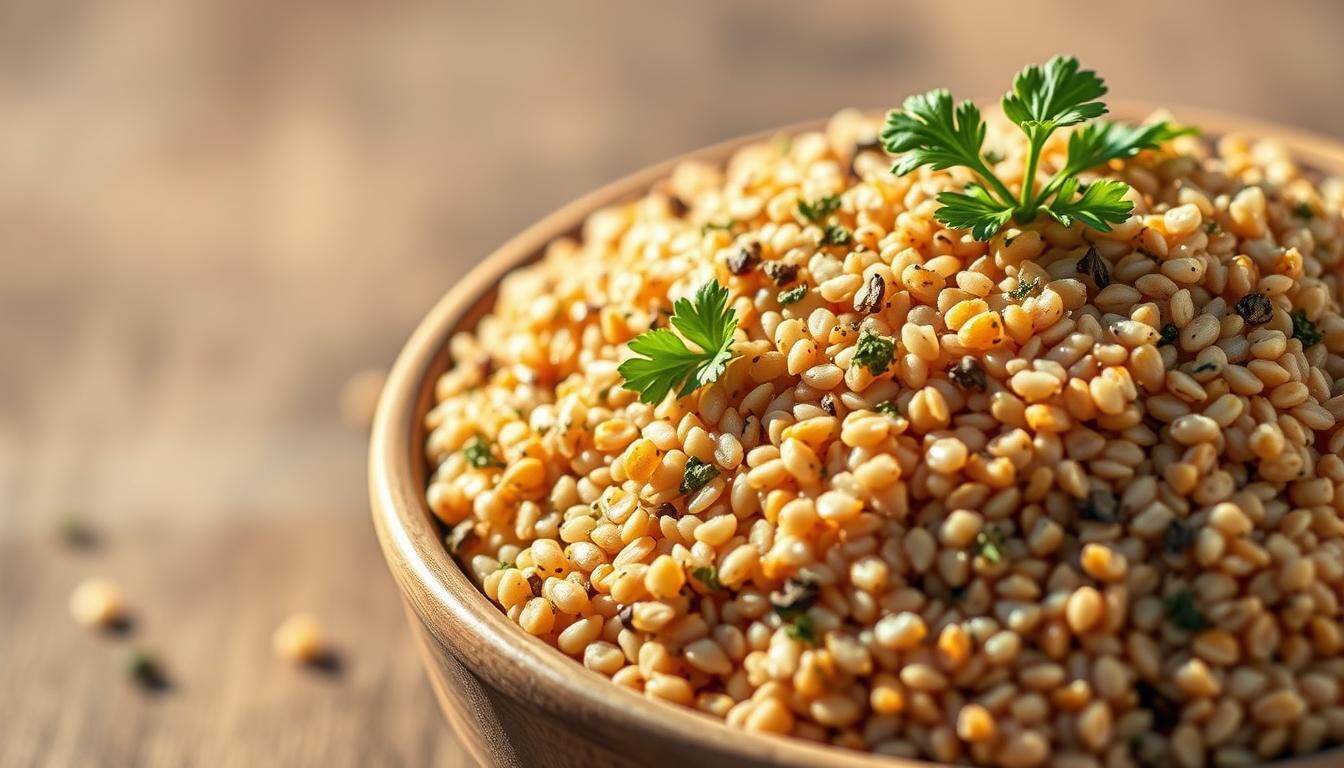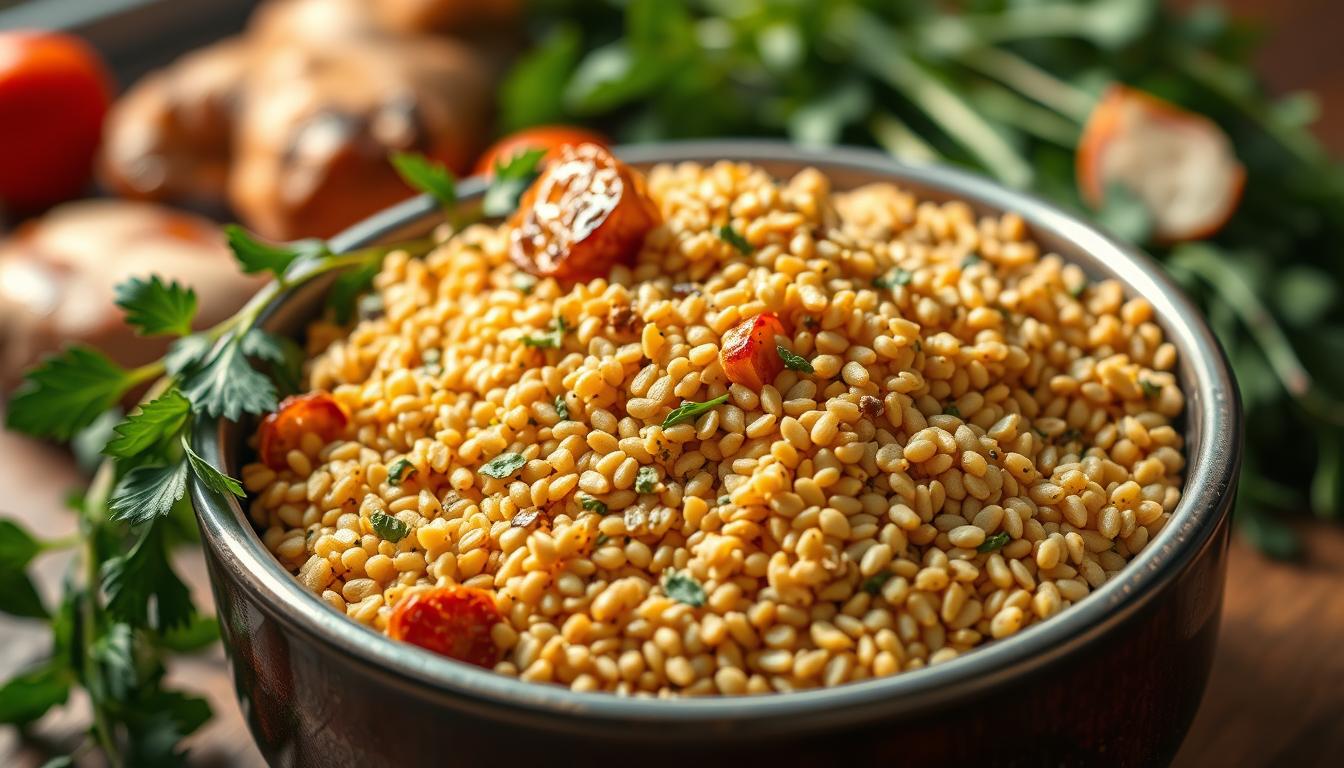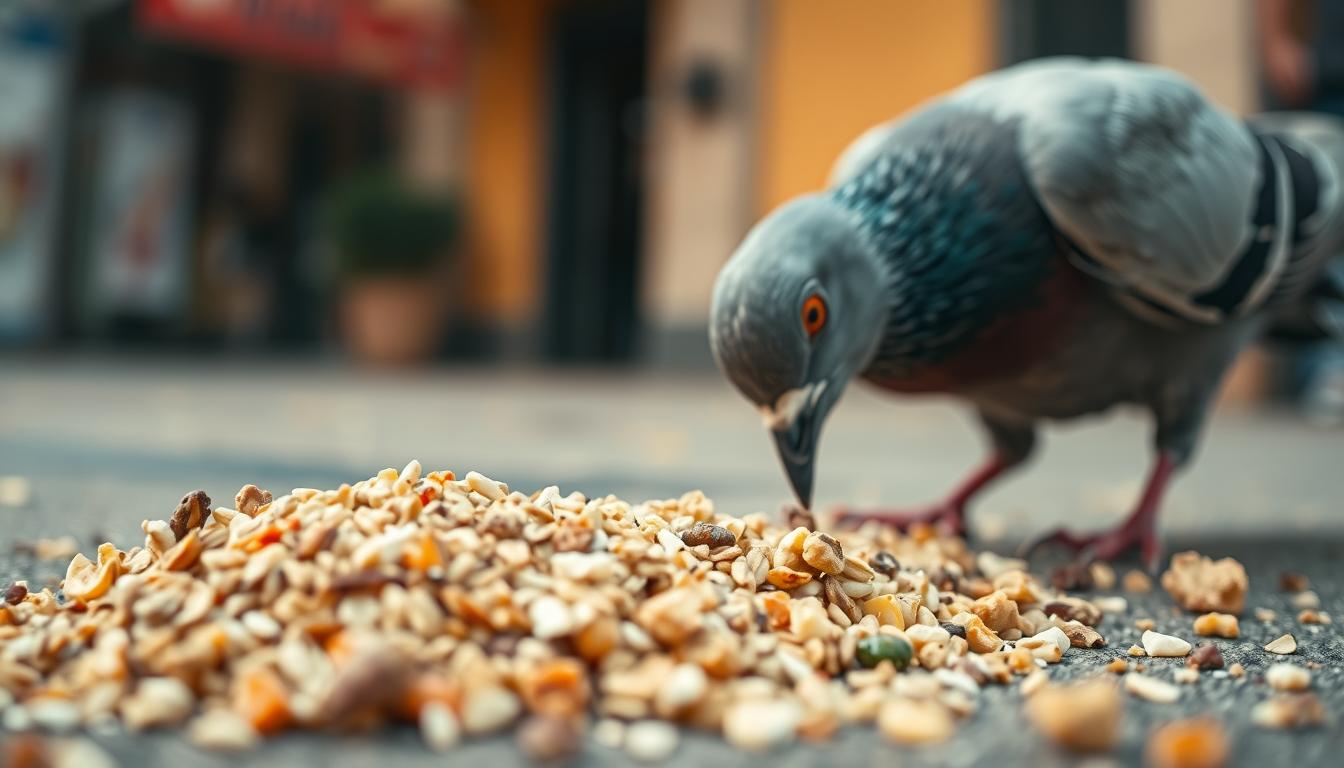As a dog owner, I remember the first time my furry companion looked up at me with those irresistible puppy eyes, begging for a bite of my snack. Pretzels seemed harmless, but I quickly learned that not all human treats are safe for our four-legged friends. Can dogs have yogurt covered pretzels? The answer isn’t as simple as you might think.
Understanding what foods are safe for dogs is crucial for their health and well-being. While pretzels might seem like an innocent treat, they can pose unexpected risks to your canine companion. Dog-friendly yogurt snacks require careful consideration, as ingredients that are perfectly safe for humans can be dangerous for dogs.
This article will dive deep into the world of pretzels and dogs, exploring the potential dangers, nutritional concerns, and safe alternatives that can keep your furry friend happy and healthy. From sodium content to choking hazards, we’ll uncover everything you need to know about sharing your favorite snacks with your loyal companion.
Table of Contents
Key Takeaways
- Not all human snacks are safe for dogs
- Pretzels can contain harmful ingredients for canines
- Sodium content in pretzels can be dangerous for dogs
- Always consult with a veterinarian before introducing new treats
- Healthier alternatives exist for dog treats
What Are Pretzels Made Of?
It’s important to know what’s in pretzels before giving them to dogs. Pretzels have ingredients that might not be good for dogs. Even though people like them, it’s not safe to share yogurt pretzels with pets.
Common Pretzel Ingredients
Traditional pretzels are made from a few basic things:
- Wheat flour
- Water
- Yeast
- Salt
Nutritional Breakdown
Pretzels have a nutritional profile that’s not great for dogs. A typical serving has:
- High sodium content: 3343 mg per serving
- Calories: 330 kcal
- Carbohydrates: 56 g
- Protein: 9 g
Safe vs. Unsafe Additives
When looking for safe dog treats, it’s key to check the ingredients. Some things in pretzels can harm dogs. Even plain pretzels can be risky if they have extra seasonings or flavors.
Always consult your veterinarian before introducing new treats to your dog’s diet.
Potential dangers include:
- Excessive salt
- Artificial preservatives
- Onion or garlic powder
- Xylitol
While pretzels are tasty for humans, they’re not good for dogs. Dogs have different nutritional needs than people.
The Potential Risks of Feeding Pretzels to Dogs
Pet owners need to be careful with pretzel treats for dogs. Dogs have special dietary needs that make some human snacks risky. Knowing the dangers of dogs and pretzels can help avoid serious health issues.
Dogs that like to eat everything are at higher risk with salty snacks. Pretzels can be harmful to your pet.
Sodium Concerns
Too much salt is bad for dogs. It can cause:
- Dangerous sodium levels causing vomiting
- Potential diarrhea episodes
- Possible neurological symptoms like tremors
- Risk of seizures
Potential Choking Hazards
Pretzels are a choking hazard, mainly for small dogs. Their hard shape can get stuck in a dog’s throat. This is an emergency that needs vet help right away.
Digestive Issues
Dogs have trouble digesting some human foods. Pretzel treats can cause:
- Stomach upset
- Intestinal discomfort
- Potential blockages
- Painful digestion
Always consult your veterinarian before introducing new treats to your dog’s diet.
Alternatives to Pretzels for Treats
Looking for safe treats for dogs means finding healthy and tasty options. Yogurt covered pretzels are not the best choice. Let’s explore some better choices that will make your dog happy and healthy.
Homemade dog treats are the best way to control what your pet eats. They ensure your pet gets the nutrients they need. Here are some easy recipes:
Homemade Dog Treat Recipes
- Peanut Butter Banana Bites
- Preparation time: 15 minutes
- Ingredients: Peanut butter, ripe banana, Greek yogurt
- Simple to make and packed with protein
- Sweet Potato Chews
- Preparation time: Several hours
- Natural, low-calorie option
- Great for dental health
Store-Bought Alternatives
If you’re short on time, there are many safe dog treats in pet stores. Look for treats that are:
- Low in sodium
- Made with natural ingredients
- Specifically designed for canine nutrition
Brands like Blue Buffalo and Wellness have great treats. They can safely replace yogurt covered pretzels. Remember, always give treats in moderation.
Pro tip: Always consult with your veterinarian before making significant changes to your dog’s diet.
When Are Pretzels Okay for Dogs?
Dog owners often wonder if they can share human snacks with their pets. While most pretzels are not good for dogs, there are rare times when a small amount might be okay. Knowing about dog-friendly snacks can help you make better choices for your pet’s diet.
Pretzels should not be a regular part of your dog’s diet. They are empty calories with health risks. When thinking about yogurt pretzels for pets, be very careful.
Occasional Treats vs. Regular Snacks
Vets say treats should not make up more than 10% of a dog’s daily calories. For pretzels, this means:
- Maximum one or two tiny pieces
- Unsalted and plain varieties only
- Infrequent consumption
Factors to Consider Based on Dog Size
Your dog’s size affects how treats are tolerated. Smaller dogs need fewer calories and are more at risk from sodium. Large breeds might handle occasional treats slightly better, but still, be careful.
Monitoring for Allergies
“Prevention is always better than cure when introducing new foods to your dog’s diet.”
Keep an eye out for allergic reactions after trying new snacks. Symptoms might include:
- Digestive upset
- Skin irritations
- Unusual lethargy
Always talk to your vet before changing your dog’s diet, even with human snacks like yogurt pretzels for pets.
Common Dog Health Conditions Related to Snacks
It’s important for pet owners to know the health risks of dog treats. Choosing safe treats is key to avoiding health problems.
Thinking about whether dogs can have yogurt covered pretzels? Be aware of the health risks from bad snacks.
Obesity and Overfeeding Risks
Dog obesity is a big problem. About 56% of dogs in the U.S. are overweight or obese. Treats like yogurt-covered pretzels can make them gain unhealthy weight.
- Excess weight increases risk of joint problems
- Obesity can lead to diabetes
- Reduced mobility and decreased life expectancy
Pancreatitis Concerns
High-fat snacks are dangerous for dogs. Studies show a 25% rise in pancreatitis cases from fatty human foods. Symptoms include:
- Severe abdominal pain
- Vomiting
- Loss of appetite
- Potential organ damage
Allergies and Sensitivities
About 15% of dogs have food allergies. Ingredients in yogurt-covered pretzels might cause allergic reactions, such as:
- Skin irritations
- Digestive issues
- Respiratory problems
“Prevention is always better than cure when it comes to your dog’s diet.” – Veterinary Nutrition Experts
Talking to a vet is the best way to know what’s safe for your dog. They can help with dietary needs and health risks.
Signs Your Dog May Have Snack-Induced Issues
It’s important for pet owners to know the risks of giving dogs pretzel treats. Dogs are curious and might eat things that are bad for them. Spotting early signs can stop serious health problems.
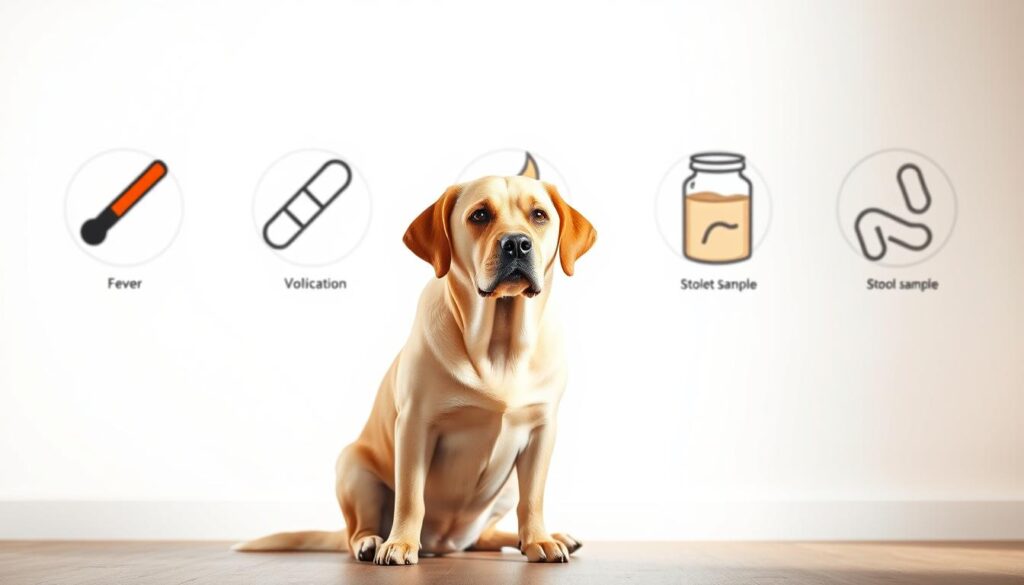
Feeding dogs yogurt-covered snacks or human treats can lead to health issues. Look out for these signs:
- Persistent vomiting
- Sudden diarrhea
- Unusual lethargy
- Excessive thirst
- Tremors or muscle weakness
Immediate Post-Snack Observations
Keep an eye on your dog after they eat a new treat. Small dogs are more at risk. Watch for changes in:
- Energy levels
- Eating patterns
- Bathroom habits
When Professional Help Becomes Necessary
Call your vet right away if you see:
- Continuous vomiting lasting more than 24 hours
- Signs of extreme discomfort
- Visible distress or pain
- Breathing difficulties
Remember: Quick action can prevent potential long-term health issues for your furry friend.
How to Introduce New Foods Safely
Introducing new treats to your dog’s diet needs careful thought and patience. Dog owners must be cautious, mainly when trying dog-friendly yogurt snacks or other safe treats. Knowing the right steps can help avoid digestive problems and keep your pet healthy.
- Start with tiny portions (about 10% of the treat’s recommended serving)
- Observe your dog for 24-48 hours after introducing the new food
- Watch for any signs of digestive discomfort or allergic reactions
- Increase portion sizes slowly if no adverse reactions occur
Recognizing Potential Adverse Reactions
Dogs can react differently to new foods. Symptoms to monitor include:
- Vomiting or diarrhea
- Excessive gas or bloating
- Lethargy or decreased appetite
- Skin irritations or itching
Determining Safe Portion Sizes
Safe treat portions depend on several factors. Consider your dog’s weight, age, and health when adding new snacks. Small dogs need much smaller portions than big dogs.
Always consult with your veterinarian before making significant changes to your dog’s diet, including trying dog-friendly yogurt snacks or new treats.
Remember, every dog is different. What works for one might not work for another. Being patient and watching closely is crucial for introducing new foods to your dog’s diet.
Pet Owner Guidelines for Safe Snacking
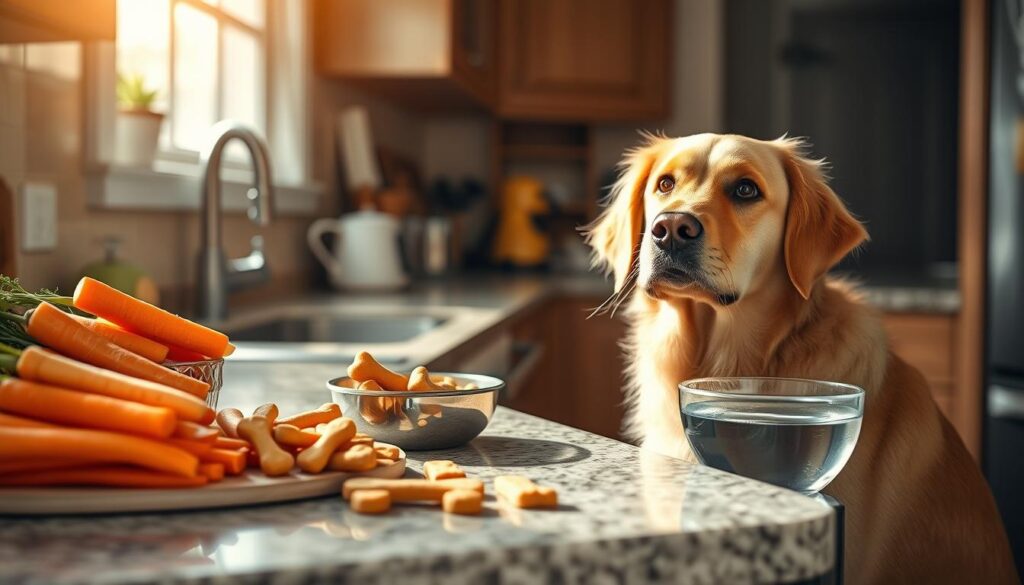
Choosing dog treats needs careful thought and knowledge. Thinking about whether dogs can have yogurt covered pretzels is important. Pet owners must know the risks and safe snacking guidelines.
It’s key to know what’s in your dog’s treats for their health. Not all human foods are safe for dogs. Yogurt pretzels for pets need careful thought.
Reading Food Labels Like a Pro
When looking at treat labels, pay attention to these important points:
- Check sodium content carefully
- Identify potentially harmful additives
- Look for natural ingredients
- Verify calorie count
Safely Preparing Human Foods
If you want to share human snacks, follow these important tips:
- Introduce new foods gradually
- Monitor your dog for adverse reactions
- Consult with your veterinarian first
- Portion control is critical
Setting Healthy Snack Boundaries
Setting clear snacking rules is important for your dog’s health. Treats should never replace balanced nutrition. Try to keep treats under 10% of your dog’s daily calories.
Remember: Just because a food is safe doesn’t mean it’s beneficial in large quantities.
When looking into yogurt pretzels for pets, always think about your dog’s specific needs. Always get professional veterinary advice.
Popular Myths about Dog Treats and Snacks
Pet owners often find conflicting info about what’s best for their dogs. Many myths exist about safe and healthy treats for dogs. This includes pretzel treats and yogurt-covered snacks.
It’s important to know the truth about dog nutrition. This means looking closely at common myths that could harm your pet’s health.
Debunking Common Misconceptions
- Dogs can eat any human snack: False. Many human foods are dangerous for dogs
- All treats are nutritionally equal: Incorrect. Quality and ingredients matter significantly
- More treats mean more love: Misleading. Overfeeding can lead to health problems
The Truth About Carbs and Dogs
Carbs aren’t bad for dogs, but they should be given in small amounts. Treats like yogurt-covered snacks and pretzels should be given carefully. Dogs need a diet rich in protein and essential nutrients.
Understanding Dog Dietary Needs
- Protein should be the primary nutritional component
- Natural, whole-food treats are preferable
- Individual dog needs vary based on breed, age, and health
Always talk to your vet to find the best treats for your dog’s needs.
Conclusion: Pretzels in a Dog’s Diet
It’s important to know the risks of giving your dog yogurt-covered pretzels. These treats can be harmful because of their high sodium and sugar. Always think about what’s best for your pet’s health.
Dogs need different foods than humans do. It’s all about making smart choices. Treats should never be a full meal, and always check with your vet before trying new foods.
Looking for safe, healthy snacks for your dog is a great idea. Choose treats that are good for them, not just fun. Remember, your vet knows best when it comes to your dog’s diet.
Summary of Key Points
Learning about your dog’s diet shows you care about their health. Avoiding harmful snacks like yogurt-covered pretzels is key. Finding safe treats takes research and a commitment to your dog’s health.
Final Thoughts on Treating Your Dog
Every dog is different, with their own needs and allergies. What’s good for one dog might not be good for another. Watch how your dog reacts to new treats and adjust as needed.
Encouragement for Healthy Choices
Take the time to learn about your dog’s diet. Talk to your vet, read good sources, and be careful with treats. Your smart choices will keep your dog happy and healthy for a long time.
FAQ
Can dogs eat yogurt-covered pretzels?
No, dogs should not eat yogurt-covered pretzels. These snacks have too much salt, sugar, and harmful additives. They can cause serious health problems like sodium toxicity, digestive issues, and choking hazards.
Why are pretzels dangerous for dogs?
Pretzels are risky for dogs because of their high salt content. They can also cause choking and are hard to digest. The salt can lead to dehydration, high blood pressure, and even sodium poisoning.
Are there any safe alternatives to yogurt-covered pretzels for dogs?
Yes, there are safe options! Try giving your dog small pieces of plain, cooked chicken, carrots, or apple slices (without seeds). You can also use dog treats made for their nutrition.
How much salt is too much for a dog?
Dogs can’t handle much salt. Even a little can be dangerous. They should only have a tiny bit of salt each day. Most dog treats have way too much salt.
What should I do if my dog accidentally eats yogurt-covered pretzels?
Watch your dog for signs like too much thirst, vomiting, diarrhea, tiredness, or discomfort. If they show any bad symptoms or ate a lot, call your vet right away.
Can plain, unsalted pretzels be okay for dogs?
Plain, unsalted pretzels are less bad, but still not good. They don’t give dogs any good nutrients and can upset their stomach. It’s better to give them treats made just for dogs.
Are there any dog-safe yogurt options?
Plain, low-fat, unsweetened yogurt is okay for dogs in small amounts. But, avoid yogurt with sugars, artificial sweeteners, or extra flavorings. Always introduce new foods slowly and in small amounts.
How can I tell if a treat is safe for my dog?
Always check the ingredients. Avoid foods with lots of salt, artificial sweeteners, or extra stuff. Talk to your vet about safe treats. Remember, dogs should only have a little bit of treats.
Source Links
- Worst Things for Dogs to Eat: Vet-Reviewed Safety & Toxicity – Dogster – https://www.dogster.com/dog-health-care/worst-things-for-dogs-to-eat
- 7 Of The Best Healthy And Nutritious Snacks For Diabetics – https://www.amritahealthfoods.com/blogs/blood-sugar-management/7-best-healthy-snacks-for-diabetics?srsltid=AfmBOoquJqBZo9jSBic3Qyi0fG_Hjzpb2M34ow7whyokV4SQSLuS76Wb
- Nutrition in Cancer Care (PDQ®) – https://www.cancer.gov/about-cancer/treatment/side-effects/appetite-loss/nutrition-hp-pdq
- No title found – https://www.akc.org/expert-advice/lifestyle/homemade-vet-approved-dog-treat-recipes/
- Homemade Soft Pretzels Recipe – Brown Eyed Baker – https://www.browneyedbaker.com/soft-pretzels/
- What Can Dogs Not Eat? 15 Foods Poisonous To Dogs – https://tractive.com/blog/en/nutrition/what-can-dogs-not-eat-15-foods-poisonous-to-dogs?srsltid=AfmBOoqbz9Kc8iJepClAlShF_xBw1SmkTgTHtw7568f1UJt4Ot7YrISt
- What Not to Feed Your Dog with Congestive Heart Failure: A Dietary Guide – https://pawprintoxygen.com/blogs/healthy-paws/what-not-to-feed-your-dog-with-congestive-heart-failure-a-dietary-guide?srsltid=AfmBOorUlttqWk721SKgxNqm7Y61o5eGl5yuH98N29SNVC9OtiLUa_ee
- 19 Homemade Dog Treat Recipes – https://www.tasteofhome.com/collection/homemade-dog-treat-recipes/?srsltid=AfmBOoo6qm3E5aZywIfekReqjfq98djGlAptmNOvI5g4Ga2l6JQmABZ7
- 19 Homemade Dog Treat Recipes – https://www.tasteofhome.com/collection/homemade-dog-treat-recipes/?srsltid=AfmBOopJ7cOwSVV8IXQsVgpWfHYrnhm3lfBODJFLa8n3_7Y1SgLGQS8n
- What Can Dogs Eat? – https://www.kinship.com/series/what-can-dogs-eat
- Top 10 Toxic Foods for Puppies: What Not to Feed Your Dog – https://olliedogfood.us/toxic-foods-for-puppies/
- What Can Dogs Not Eat? 15 Foods Poisonous To Dogs – https://tractive.com/blog/en/nutrition/what-can-dogs-not-eat-15-foods-poisonous-to-dogs?srsltid=AfmBOopEiKiwMaXtyqI1wREoM5siqDZ0GA0FO5NAmyeYsXlyzFgCX6ID
- Even Your Pickiest Pup Will Go “Mutts” for These Homemade Dog Treats – https://www.womansday.com/life/pet-care/g2333/diy-homemade-dog-treats/
- Valued Naturals Sweet – Salty Yogurt Pretzels Value Size, 18 oz – https://www.priceritemarketplace.com/product/valued-naturals-sweet-salty-yogurt-pretzels-value-size-18-oz-id-00790429262669
- What Can Dogs Not Eat? 15 Foods Poisonous To Dogs – https://tractive.com/blog/en/nutrition/what-can-dogs-not-eat-15-foods-poisonous-to-dogs?srsltid=AfmBOooUAb2dkxkAj6uQFiXA33LJHz_XYjlhA4gbqnxtKdFag-aLUyhB
- 19 Homemade Dog Treat Recipes – https://www.tasteofhome.com/collection/homemade-dog-treat-recipes/?srsltid=AfmBOoofZ_mTY79Y4-DQsXI3y6HVA0kSOB8-RLyuUAIRRbtZd9891E9P
- Diet for Managing Chronic Pancreatitis – https://www.verywellhealth.com/diet-and-chronic-pancreatitis-2507165
- What Can Dogs Not Eat? 15 Foods Poisonous To Dogs – https://tractive.com/blog/en/nutrition/what-can-dogs-not-eat-15-foods-poisonous-to-dogs?srsltid=AfmBOoovfaY_CEn5JlPiQNHwbx6yZvbRnDIqKFAQsMOzDXx5KtWE8cfQ
- What Not to Feed Your Dog with Congestive Heart Failure: A Dietary Guide – https://pawprintoxygen.com/blogs/healthy-paws/what-not-to-feed-your-dog-with-congestive-heart-failure-a-dietary-guide?srsltid=AfmBOor-KuXJTm9DK0OFnLSjB9FDYjqx5glY-VXcOsi78I514uX8hiCH
- 10 Clever Ways To Use Frozen Peanut Butter – Chowhound – https://www.chowhound.com/1772318/ways-to-use-frozen-peanut-butter/
- Blog – my Hungry Traveler – https://myhungrytraveler.com/blog/
- Which Human foods are safe for dogs? – Doggie Food Items – https://doggiefooditems.com/which-human-foods-are-safe-for-dogs/
- Dog Chocolate Toxicity Calculator – How Much Chocolate Can Dog Eat? – https://worldanimalfoundation.org/dogs/chocolate-toxicity-calculator/
